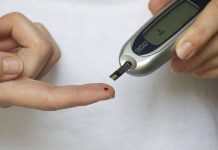According to the U.S. Department of Health and Human Services, around 5 percent of women go through early menopause naturally. Early menopause is defined as the cessation or decline in ovarian function occurring between the ages of 40 and 45. When it happens under the age of 40, it is called premature menopause. Early menopause has been linked to an increased risk of cancer.
“Diseases that make the body’s immune system attack its own tissues can affect the ovaries. When this happens, the ovaries may become incapable of producing female hormones or eggs”
What Are the Causes of Early Menopause?
Many factors could cause a woman to go into menopause early. They include:
Chromosome defects – Incorrectly formed chromosomes can cause the ovaries to stop functioning by interfering with how the reproductive system operates. Turner’s syndrome is one example of an instance when the X chromosome has a defect that affects fertility.
Genetics – Some women are genetically predisposed to go through menopause at an earlier age. The age at which your mother went through it is a good indicator for when you will as well.
Autoimmune diseases – Diseases that make the body’s immune system attack its own tissues can affect the ovaries. When this happens, the ovaries may become incapable of producing female hormones or eggs.
Surgical removal of the ovaries – The change is the result when the ovaries must be removed. The woman will no longer produce female hormones and will stop having periods immediately after the surgery.
Chemotherapy or pelvic radiation therapy – Chemotherapy and pelvic radiation therapy for cancers of the reproductive organs can damage the ovaries resulting in a decline in fertility.
“A 2019 study out of the European Association of Urology found that women who went through menopause before the age of 45 had a 45 percent higher risk of developing bladder cancer”

What Are the Symptoms of Early Menopause?
Menopause can be uncomfortable whether it is early or not. Some women have few or no symptoms while others have many. Its symptoms are the same as when it occurs at the normal time. They include:
- Mood swings
- Vaginal dryness
- Hot flashes
- Night sweats
- Weight gain
- Diminished sexual desire
- Pain on intercourse
- Sleep problems
- Sadness or depression over the loss of fertility
How Does Early Menopause Increase the Risk of Cancer?

A 2019 study out of the European Association of Urology found that women who went through menopause before the age of 45 had a 45 percent higher risk of developing bladder cancer than women whose menopause occurred later. If the women smoked, their risk increased to 53 percent.
One reason for the early menopause cancer risk may come down to structures within the DNA code. Telomeres are the portion of the DNA structure that protects it from damage. As people age, their telomeres get shorter and become less able to do their job.
Women in early menopause have been shown to have shorter telomeres. This means that these women are aging at a faster rate than women who go through it later. As people age, their risk for diseases such as cancer increases, probably as a function of their telomeres being less able to resist DNA damage.
“Most of the time, menopause requires no treatment. If your symptoms bother you, your doctor can prescribe hormone replacement therapy (HRT) for you”
When to Get the Help of Your Doctor?
Should you believe that you are going through early menopause, you should seek an evaluation from your doctor. He or she will be able to confirm through tests whether your symptoms are due to menopause or some other condition.
Conditions that mimic the symptoms of early menopause include polycystic ovarian syndrome (PCOS) and diseases of the thyroid gland. In both cases, you are still fertile and could become pregnant. Until your menopause has been confirmed, you should still use contraception if you do not want to have children.

Most of the time, menopause requires no treatment. If your symptoms bother you, your doctor can prescribe hormone replacement therapy (HRT) for you. HRT replaces the estrogen that your ovaries no longer produce. It is usually given in pill form. However, HRT may increase your risk for breast and ovarian cancers. If you have a family history of these cancers, be sure to tell your doctor.
Menopause is considered early when it occurs before the age of 45. There are many reasons why it happens, including genetics, some cancer treatments, and the surgical removal of the ovaries. There is an early menopause cancer risk, especially cancer of the bladder. If you think you might be undergoing menopause early, see your doctor. He or she will evaluate your symptoms, discuss your risks of diseases such as cancer and determine whether HRT is right for you.
Sources & References:
https://www.womenshealth.gov/menopause/early-or-premature-menopause





















